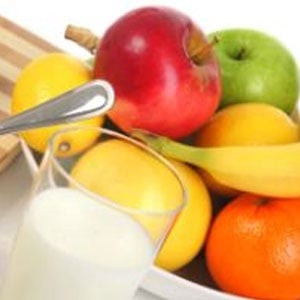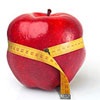
Dietitian to Fedics, Annelize Zeelie, emphasises the need for a healthy, balanced diet to preserve the wellbeing of people with HIV/Aids.
As HIV attacks the body's immune system, it has to work harder to fight infection, requiring an increase in energy and nutrients. People infected with HIV will therefore have to eat more to meet these extra energy and nutrient requirements, this will further increase as the symptoms of HIV/Aids develop and the virus progresses.
The three nutritional areas most affected by HIV/Aids are:
Food intake
People with HIV/Aids tend not to eat enough, not only due to the illness but also the medication to treat it may reduce the appetite, modify the taste of food and prevent the body from absorbing it. Symptoms such as a sore mouth, nausea and vomiting also make it difficult to eat; tiredness, isolation and depression also reduce the appetite and the willingness to make an effort to prepare food and eat regularly. For many there is simply not enough money to buy food.
Food absorption
Food, once eaten, is broken down by digestion into nutrients. These nutrients pass through the gut walls into the bloodstream and are transported to the organs and tissues in the body where they are needed. One of the consequences of HIV and other infections is that since the gut wall is damaged, food does not pass through properly and is consequently not absorbed.
Diarrhoea is another common occurrence in people with HIV/Aids. When a person has diarrhoea the food passes through the gut so quickly that it is not properly digested and fewer nutrients are absorbed. This reduced food intake and absorption leads to weight-loss and malnutrition.
Weight Maintenance
When a person does not eat enough food, or the food eaten is poorly absorbed, the body draws on its reserve-stores of energy from body fat, and protein from muscle. As a result the person loses weight as their body fat and muscles are lost. To gain or maintain weight, they will have to consume more food, either by eating larger portions and/or eating meals more frequently, using a variety of foods.
Coping with problems that might affect food intake:
Symptom | Suggested therapy |
Fever and loss of appetite |
|
Sore mouth and throat (problems with chewing and swallowing) |
|
Nausea and vomiting |
|
Diarrhoea |
|
Fat malabsorption |
|
Constipation |
|
Tiredness |
|
Heartburn and bloatedness |
|
Muscle wasting |
|
Loss of taste/dry mouth |
|
When treating HIV/Aids, different drugs are absorbed differently and have different side-effects; the after-taste can also sometimes be unpleasant. Here are some recommendations to promote maximum absorption, and minimise the side-effects and after-taste.
Drug use and food:
Regimen: | Drug: | Recommended to be taken: |
1a | Lamivudine, 3TC | With food / on empty stomach |
Stavudine, d4T, Stavir , Zerit | With food | |
Efavirenz, Stocrin | Not with fatty meals, bedtime | |
1b | Lamivudine, 3TC | With food/on empty stomach |
Stavudine, d4T, Stavir , Zerit | With food | |
Nevirapine | With food/on empty stomach | |
2 | AZT, Zidovudine | 30 mins before meals/1 hour after meals |
ddI, Didanosine | On empty stomach; drink fluids frequently, do not take antacids simultaneously | |
Ritonavir, Kaletra | With high energy, high-fat meal (like a peanut butter and jam sandwich with soft margarine), suck ice to dull taste buds, chew strong flavoured chewing gum after dose. Avoid large doses of garlic. |
Disguising the taste of these medications is important, especially with children. It is best done by adding a small amount of the drug to cold foods such as ice-cream, milk shakes, or fruit ices. The drugs can also be added to thick, sweet foods, such as honey, jellies, frozen juice, or small amounts of peanut butter, pudding, applesauce, or yoghurt. Make sure you use small quantities of food to disguise the drug; this will ensure that the entire dose of medication is consumed. - (Health24, August 2011)
- Information supplied by Inzalo Communications




 Publications
Publications
 Partners
Partners











